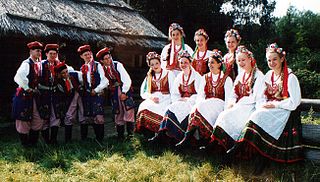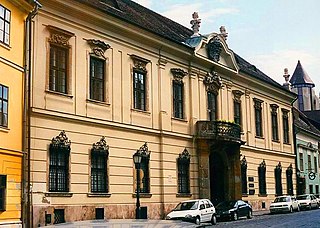Related Research Articles

Reykjavík is the capital and largest city of Iceland. It is located in southwestern Iceland, on the southern shore of Faxaflói bay. Its latitude is 64°08' N, making it the world's northernmost capital of a sovereign state. Reykjavík has a population of around 140,000 as of 2023. The Capital Region has a population of around 248,000.

Viljandi is a town and municipality in southern Estonia with a population of 17,407 in 2019. It is the capital of Viljandi County and is geographically located between two major Estonian cities, Pärnu and Tartu. The town was first mentioned in 1283, upon being granted its town charter by Wilhelm von Endorpe. The town became a member of the Hanseatic League at the beginning of the 14th century, and is one of five Estonian towns and cities in the league. The once influential Estonian newspaper Sakala was founded in Viljandi in 1878.

Siglufjörður is a small fishing town in a narrow fjord with the same name on the northern coast of Iceland.
The music of Iceland includes vibrant folk and pop traditions, as well as an active classical and contemporary music scene. Well-known artists from Iceland include medieval music group Voces Thules, alternative rock band The Sugarcubes, singers Björk, Hafdís Huld and Emiliana Torrini, post-rock band Sigur Rós, post-metal band Sólstafir, indie folk/indie pop band Of Monsters and Men, blues/rock band Kaleo, metal band Skálmöld and techno-industrial band Hatari. Iceland's traditional music is related to Nordic music forms. Although Iceland has a very small population, it is home to many famous and praised bands and musicians.
The culture of Iceland is largely characterized by its literary heritage that began during the 12th century but also traditional arts such as weaving, silversmithing, and wood carving. The Reykjavík area hosts several professional theaters, art galleries, bookstores, cinemas and museums. There are four active folk dance ensembles in Iceland. Iceland's literacy rate is among the highest in the world.

The Jewish Culture Festival in Kraków is an annual cultural event organized since 1988 in the once Jewish district of Kazimierz by the Jewish Culture Festival Society headed by Janusz Makuch, a self-described meshugeneh, fascinated with all things Jewish. The main goal of the festival is to educate people about Jewish culture, history, and faith (Judaism), which flourished in Poland before the Holocaust, as well as to familiarize them with modern Jewish culture, developing mostly in the United States and Israel, and finally, to provide entertainment.

Kraków is considered by many to be the cultural capital of Poland. It was named the European Capital of Culture by the European Union for the year 2000. The city has some of the best museums in the country and several famous theaters. It became the residence of two Polish Nobel laureates in literature: Wisława Szymborska and Czesław Miłosz, while a third Nobel laureate, the Yugoslav writer Ivo Andrić also lived and studied in Krakow. It is also home to one of the world's oldest universities, the Jagiellonian University of Kraków, and Jan Matejko Academy of Fine Arts, the oldest Polish fine art academy, established in 1818 and granted full autonomy in 1873.

Budapest has long been an important part of the music of Hungary. Its music history has included the composers Franz Liszt, Ernő Dohnányi, Zoltán Kodály and Béla Bartók and the opera composer Ferenc Erkel.

Sigurjón Birgir Sigurðsson, known as Sjón, is an Icelandic poet, novelist, lyricist, and screenwriter. Sjón frequently collaborates with the singer Björk and has performed with The Sugarcubes as Johnny Triumph. His works have been translated into 30 languages.

Sinfóníuhljómsveit Íslands (ISO) is an Icelandic orchestra based in Reykjavík, Iceland. Its primary concert venue is the Harpa Concert Hall. The Iceland Symphony is an autonomous public institution under the auspices of the Icelandic Ministry of Education. Iceland Symphony Orchestra made its home in Háskólabíó from 1961 to 2011, but moved into the new 1800-seat Harpa Concert Hall in spring 2011. The orchestra gives approximately sixty concerts each season. Per a 1982 law, the Iceland Symphony's primary financial sources are the Icelandic treasury (82%) and the City of Reykjavik (18%).

The culture of San Antonio reflects the history and culture of one of the state's oldest and largest cities straddling the regional and cultural divide between South and Central Texas. Historically, San Antonio culture comes from a blend of Central Texas and South Texas (Southwestern) culture. Founded as a Spanish outpost and the first civil settlement in Texas, San Antonio is heavily influenced by Mexican American culture due to Texas formerly being part of Mexico and, previously, the Spanish Empire. The city also has significant German, Anglo, and African American cultural influences. San Antonio offers a host of cultural institutions, events, restaurants and nightlife in South Texas for both residents and visitors alike.

Reykjavík International Film Festival is an international film festival held annually in Reykjavík, Iceland. The festival lasts 11 days each year and emphasizes young talents. One way of doing so is having a competitive category exclusively limited to a director's first or second feature-length film. At each festival, a number of awards are given out. The main award is the Discovery of the Year award, also called Golden Puffin, given by an international jury. The international federation of film critics FIPRESCI send a jury to RIFF from 2006. Also, the audience can vote for their favorite film from the whole programme. Lifetime achievement awards and creative excellence awards are given to well-known film directors who have achieved excellence in their work.
Gunnsteinn Ólafsson is an Icelandic conductor of orchestra, musical ensembles and opera. He is the founder of the Siglufjörður Folk Festival and the Iceland Youth Symphony Orchestra.

University of Tartu Viljandi Culture Academy is an Estonian institution of higher education, situated in the provincial town of Viljandi, central Estonia. The UT Viljandi Culture Academy merged with the University of Tartu in 2005. The UT VCA has been teaching professional higher education and performing applied research within information science, culture education and creative arts since 1952. The academy has about 1000 students, half of whom are open university students. The teaching and instruction are based on the continuity and sustainability of Estonian native culture enriched by new impulses which widen the notion of traditional culture. As of 2021, the Director of the institution is Juko-Mart Kõlar.

Burdur Mehmet Akif Ersoy University, abbreviated as MAKU, is a public university located in Burdur, Turkey. It was established in 2006. It is named after Mehmet Akif Ersoy.
The Herring Era Museum is located in Siglufjörður, Iceland. It is Iceland's largest maritime museum and the only Icelandic museum to have won the European Museum Award. The museum officially opened in 1994 in Róaldsbrakki, an old salting station which had been left abandoned after the collapse of the herring stock in 1969. Additionally two more buildings have been built for the museums exhibitions since then. Also, the museum owns the Old Slipway down by the harbour. Siglufjörður used to be the center of the herring fisheries in Iceland, and the herring played a very large role in the nations economy and industry, providing as much as 44% of the nations export income during some years.

Egill Helgason is an Icelandic journalist and television presenter.
The following is a list of notable events and releases of the year 2016 in Icelandic music.
The following is a list of notable events and releases of the year 2018 in Icelandic music.
References
Reykjavik Art Festival - Eyrarrosin
The Ministry of Education, Science and Culture